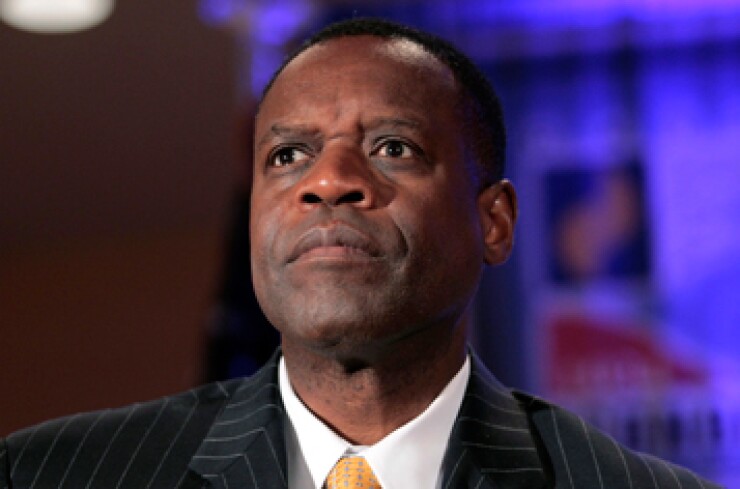
CHICAGO -- Emergency manager Kevyn Orr said Detroit would be more attractive to Wall Street than ever after the bankrupt city emerges from Chapter 9 later this year.
"If we get this done right, the city will be more underwritable than during any time in the past 60 years," Orr said in a speech at the Detroit Chamber of Commerce's annual conference at Mackinac Island.
The city is restructuring and cleaning up its "financial processes" to make it an attractive credit to investors. A post-bankrupt Detroit will be a city that "pays its bills on time" and has "adequate revenue" for its operations, Orr said.
The chamber's annual island event is attended by hundreds of state and local politicians as well as Gov. Rick Snyder. Motown's bankruptcy and the city's recovery have been the main topics at the three-day event.
In his Friday morning talk, Orr also accused financial creditors of spreading false information about Detroit's assets and warned they are trying to undermine the so-called "grand bargain" that's central to the city's plan of confirmation.
Orr characterized the creditors -- apparently referring to bond insurers -- as angry and "very ticked off," and warned they're working hard to derail the bargain that's central to the labor settlements, Orr said. They have launched a "significant disinformation campaign" about the city owned art collection, he said, and are sending the false information to the "New York financial press," he said.
"They are driving a very concerted and focused campaign to undermine the proposal we have on the table," said Orr, calling the grand bargain "delicate."
The grand bargain would infuse $816 million to the city's pension systems with a mix of public and private funds from a group of foundations, the Detroit Institute of Arts, and the state. The money would go toward the city's pensions and protect its prized art collection by allowing the museum to spin into an independent nonprofit authority.
Investors who bought the city's bonds in the past took a risky gamble and are now paying the price, according to the emergency manager.
They "made a bad bet, and went all in when they shouldn't have," said Orr. "Now they have to deal with the consequences."
Detroit has reached settlements with many of its major labor creditors and the three insurers who wrap its unlimited-tax general obligation bonds.
But deals have yet to be struck with bond insurers who insure the city's $1.4 billion pension certificates of participation and $5.7 billion of water and sewer revenue bonds.
Syncora Guarantee, Inc., which has been the city's most stalwart opponent since it filed for Chapter 9 protection last July, has appealed a settlement with interest-rate swap counterparties. Together, Syncora and FGIC make up the city's second-largest creditor class behind pensions and retiree health care obligations.
The Michigan House May 22 passed the legislation authorizing the $195 million state contribution to the grand bargain, with a host of strings attached, by an overwhelming majority. The Senate is expected to take the package up as early as June 3, when the Senate government operations committee may hold a hearing on the bills, according to Amber McCann, spokesman for Senate Republicans. If it passes, the full Senate may take it up Wednesday.
Snyder and other supporters want lawmakers to pass the bills before their summer break, tentatively scheduled for June 12.
In a panel discussion on Detroit's future, House Speaker Jase Bolger, R-Midland, said the super-majority House vote in favor of the grand bargain legislation signaled a shift in the way many lawmakers perceive Detroit.
There were legislators from southwest and northern Michigan saying 'We stand with you,'" Bolger said. "It's not the urban core versus the suburbs, it's us coming together."





